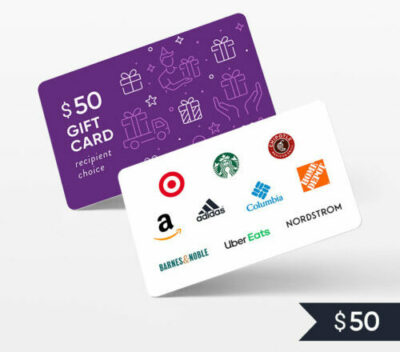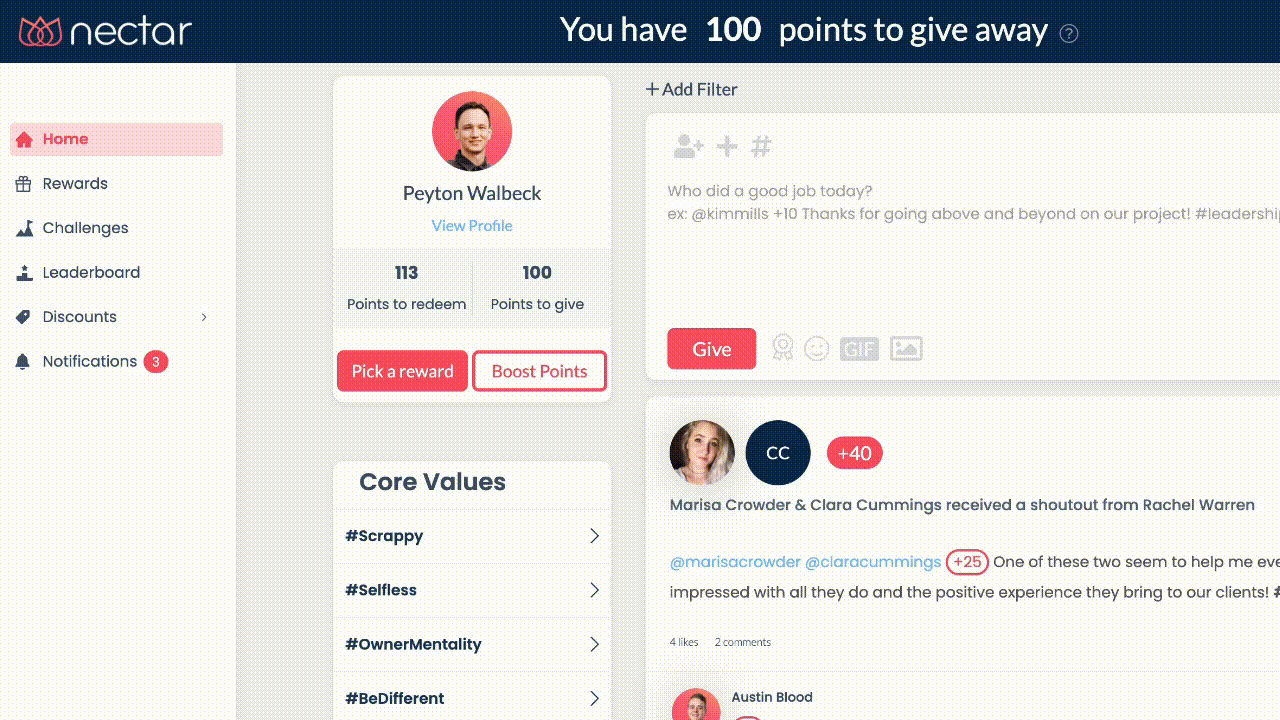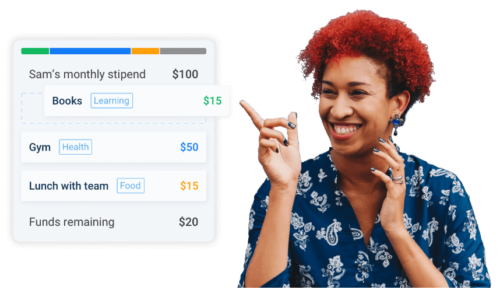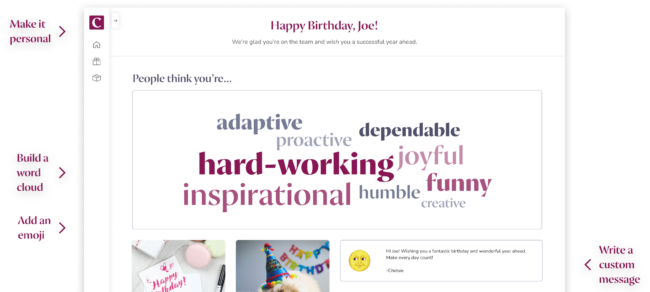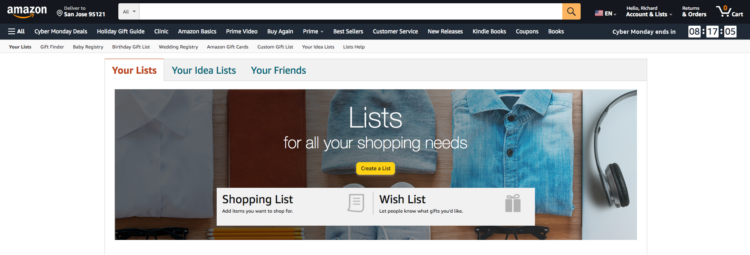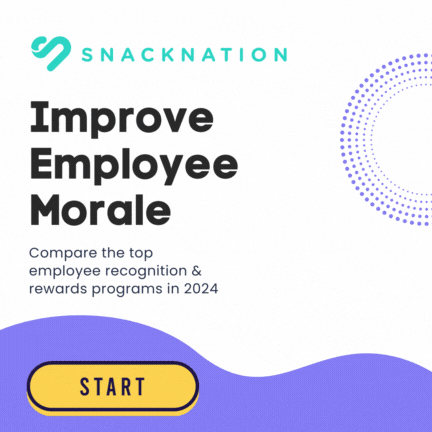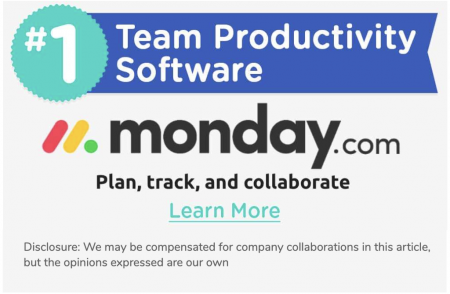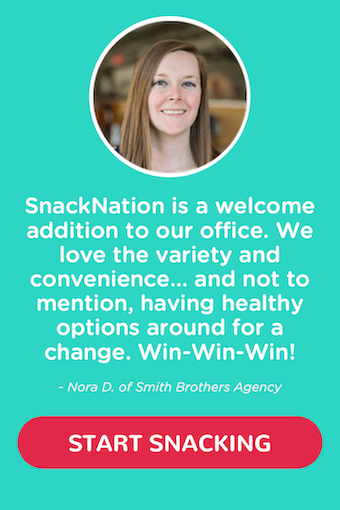Employees who are actively disengaged in the workplace have cost businesses over $7.8 billion in lost productivity. It’s fair to say that motivating employees is top of mind at every organization.
In a survey, Genesis Associates found that 85% of employees stated that they were motivated by monetary incentives.
While many factors impact motivation and productivity, monetary incentives and rewards remain very attractive and shouldn’t be overlooked by business leaders, especially if talent retention is a core focus. After all, compensation remains a key reason why people switch jobs.
In a survey, Genesis Associates found that 85% of employees stated that they were motivated by monetary incentives. Click To TweetIf you’re looking to effectively motivate talent and foster a culture of appreciation, find out which monetary incentives and rewards may do the trick at your business.
What are monetary rewards and incentives?
Monetary rewards and monetary incentives are cash or gifts with a definitive monetary value provided by employers to employees. On top of employee benefits, monetary incentive programs are offered and designed by leadership and human resources departments to recognize employee performance and encourage team members to exceed their goals.
These perks or benefits are paid to employees on top of their base pay and benefits, as opposed to non-monetary incentives.
Examples of these financial incentives include stock options, profit-sharing, end-of-year bonuses, spot bonuses, and lifestyle budgets.
What are the benefits of using monetary incentives at work?
People love to strive for growth, knowing how to unlock potential—and this goes the same for their earning power. Typically used as a mechanism to maximize efficiency by creating a motivational goal for employees, monetary incentives at work can influence positive employee behavior.
Monetary incentives and rewards benefit companies and employees in several ways, including the following:
✅ Increased productivity
Monetary incentives play a powerful role in motivating top performers to exceed company objectives and goals. Monetary incentives can offer an equitable system for employees to know where they stand and the earning potential they have. As such, the element of control can particularly motivate employees as they know that extra effort put into their work can unlock extra income or gains.
✅ Retention
Retaining talent has been a constant challenge in a competitive talent market. While there are different types of incentives, financial rewards can be a strong employee retention tool, especially during market volatility or times of uncertainty.
✅ Engagement
When businesses invest in their people and show appreciation, employees feel like they belong and are cared for as an individual. With a boost in employee satisfaction, workers come to work with a can-do attitude ready to contribute.
Now that we’ve covered the definition and benefits of monetary incentives and rewards, let’s take a look at some examples you can implement in your employee incentive program to motivate those at your organization.
👉 Free Download: Employee Reward Ideas PDF
5 Monetary Incentive Examples
At the crux of a successful incentive plan is the intention to match what your employees need with the specific incentives that inspire employees to achieve high-performance metrics. Here are some monetary incentive examples that encourage employees to meet or exceed specific goals in their work.
1) Digital gift card
Digital gift cards (e-gift certificates or e-vouchers) are the electronic version of physical gift cards that can be emailed directly to a recipient’s email address or added to their mobile wallet. A fixed monetary value is attached to these employee gift cards, which are issued by the sender. Recipients use these cards to make purchases at specified stores, and they may expire at a certain point.
Why employees love this monetary incentive: Gift vouchers are convenient to use and allow employees to make their own choices of what to purchase. What’s better than earning a shopping spree at your favorite store, paid for by your employer?
Tip! Tailor your gift cards to celebrate individual employee milestones. Offer a shopping category that your team member will be excited to use based on their unique interests. For example, send them to a bookstore if they’re into horror novels, or a gym membership if they’re a fitness junkie.
You can also try out a gift card service like Stadium that automates things for you!
2) Redeemable recognition points
Reward points have a monetary value attached to them and are a fun, tangible form of acknowledging team members doing great work. This sort of employee reward system can allow employees to redeem points to use for a wide variety of recognition gifts.
This way, they can purchase something meaningful that they might not normally prioritize, such as merchandise, events, or gift cards.
Why employees love this monetary incentive: This flexible incentive is a great type of employee recognition that empowers employees to choose their reward according to their own needs and schedule. The gamification aspect of a reward points system also adds excitement and energy, fostering friendly competition.
Tip! Allow diversity of gift choices and maximum flexibility for points redemption, such that employees can save their points at a later date until they find a suitable reward to spend their points on.
3) Monthly stipend
A monthly stipend is a fixed sum of money for employees to use as an allowance for a certain purpose. For example, you could offer a stipend to cover the cost of commuting travel, gym memberships, professional development, or general lifestyle expenses.
It’s a meaningful employee recognition idea where employees can choose what to spend the allowance on in ways that fulfill their personal needs.
Why employees love this monetary incentive: Stipends for purposes of lifestyle and wellness show employees that their holistic well-being is a priority for their organization. By taking care of your people, they’ll more likely be committed to taking care of your business.
Tip! If you’re issuing a stipend to your employees for a specific purpose, set expectations on what they’ll use it for. You may want to create a guideline with examples and potentially use a stipend service to spell out the vendors and initiatives the stipend will cover.
4) Cash spot bonus
A spot bonus is a spontaneous small cash prize paid to individual employees directly for a specific action or result, for example meeting sales quotas. These are typically immediate rewards companies offer to employees for achieving something that deserves recognition.
Why employees love this monetary incentive: If you’re holding your employees accountable for their individual KPIs, great news: 65% of employees prefer bonuses to be based on their personal performance. Unlocking cash bonuses is an effective morale booster for top performers, as receiving them indicates that they’re doing well. This recognition will generate excitement, leading to better productivity and improved motivation.
Tip! Be quick to reward spot bonuses to well-defined behaviors so that other employees can model and pursue similar achievements.
5) Home office budget
Providing a home office budget for workers is one of the best employee perks of the modern workplace. Offering this satisfies the growing need for remote and hybrid work environments to improve the employee experience for dispersed workers.
Providing remote employees with a fund for maintaining their home office environment is a great way to help maintain productivity. This can allow employees to customize their home office and cover the costs of internet, ergonomic chairs, desks, and computers.
Why employees love this monetary incentive: As work-from-home and flexible working arrangements are becoming more of the norm, it’s vital to ensure that team members are equipped with a home office space that works for them. Equipment can be expensive, and covering the costs of high-quality furniture and tools they need to stay productive will help ease the expenses.
Tip! On top of the home office budget, consider sending employees something special to spruce up their workspace every so often. It could be anything from wall art to a cute plant for their office desk.
👉 Free Download: Employee Reward Ideas PDF
5 Monetary Rewards Examples
Monetary reward examples are prizes that recognize an employee’s achievement or hard work. Reward programs often offer a mix of monetary and non-monetary rewards.
1) Weekend experience outside the office
Who would say no to a weekend experience gifted by your employer? Whether it’s a ticket to the cinema or a night at the science museum, offering a cool weekend experience shows how much your organization cares about wellness, play, and rest.
Why employees love this monetary reward: Curated experiences can offer authentic connections and create core moments, making them a memorable way to reward employees instead of cash and gifts.
Tip! If you can, offer experiences that employees can share with their family members and loved ones so that they know that their employer cares about their non-work relationships too.
2) Company lunch!
When employees are working from home, cooking or managing lunch meals may not be a priority (especially on a busy day). By sending a food delivery coupon or directly delivering lunch to your team members during working hours, they’ll appreciate the gesture of being taken care of.
Why employees love this monetary reward: Working at home may offer less casual touchpoints for employees to connect. An intentional lunch session can help employees get to know people better and improve morale, especially if there are new teammates who’ve been onboarded recently.
Tip! Encourage your team to have lunch together virtually and catch up with their personal lives! Healthy personal connections can influence better teamwork, and many remote workers report that they miss socializing with their coworkers. Arranging a sponsored team lunch is a thoughtful employee engagement idea to help increase team bonding and communication.
3) A signed ecard from the team
Have a stellar team player go above and beyond to support others? Delight them with a work e-card signed by the entire team to congratulate them on their contributions. Tag on a prepaid credit card so they can shop to their heart’s content.
Why employees love this monetary reward: Words of appreciation (an example of non-cash incentives) paired with a paid shopping adventure are a perfect example of employee rewards and recognition that are both heartfelt and practical. What a way to make team members feel proud of their accomplishments!
Tip! Find an e-card that’ll create an emotional connection between your employee and the wider organization. Consider tailoring the visuals and messaging to what they relate to, like their obsession with cats or their unmistakable sense of humour.
👉 Try CareCards for FREE as a personalized ecard for teams!
4) Amazon Wish List
If your employees are willing to share their Amazon wishlist, this is a perfect way to surprise them—and can save you from guessing what exactly they’d appreciate. This is a great way to customize employee recognition gifts knowing that the item you’ve bought is what they want or plan to purchase in the future.
Why employees love this monetary reward: Anything on someone’s wishlist is already what they want or plan to buy, so this guarantees satisfaction upon receiving it! This takes the guesswork out of the purchase and shows that you’re an employer who listens to each individual’s needs.
Tip! Make sure you standardize gift values according to your budget, to ensure fairness across team members and maintain expectations for future rewards.
5) End-of-year bonus
Last but not least, a bonus is paid to employees as an incentive for them to perform well throughout the year, for example consistently hitting quarterly targets. When employees exceed goals and objectives, employers award a financial bonus to reward their performance.
Why employees love this monetary reward: Employee bonus programs are an effective way to improve job satisfaction, and they create a sense of ownership and belonging.
Tip! Create a structured policy around employee bonuses so team members are less likely to be confused about how to unlock them. Encourage the demonstration of company values to make sure the recognition program is integrated into your company culture.
People Also Ask These Questions About Monetary Incentives
Q: What are monetary incentives?
A: Monetary incentives are cash or financial compensation provided by an employer to an employee, typically in addition to their salary. Examples of monetary incentives include redeemable recognition points, cash spot bonuses, and digital gift cards.
Q: Why is it important to utilize monetary-based rewards at work?
A: Monetary incentives can boost extrinsic employee motivation in the short term, helping increase your business’s bottom line. In turn, this leads to increased productivity and greater chances of talent retention.
Q: What are some unique ways to give my employees cash?
A: Gifting employees an item on their Amazon wishlist is a creative way to reward them for good work. Paying for a weekend experience outside of the office can demonstrate the care and importance of well-being for your team members.
Q: What are the different types of monetary incentives that managers can use?
A: Offering employees cash spot bonuses can be a key motivator for employees. Gift cards and redeemable recognition points offer flexibility for employees to choose their rewards customized to their needs.



